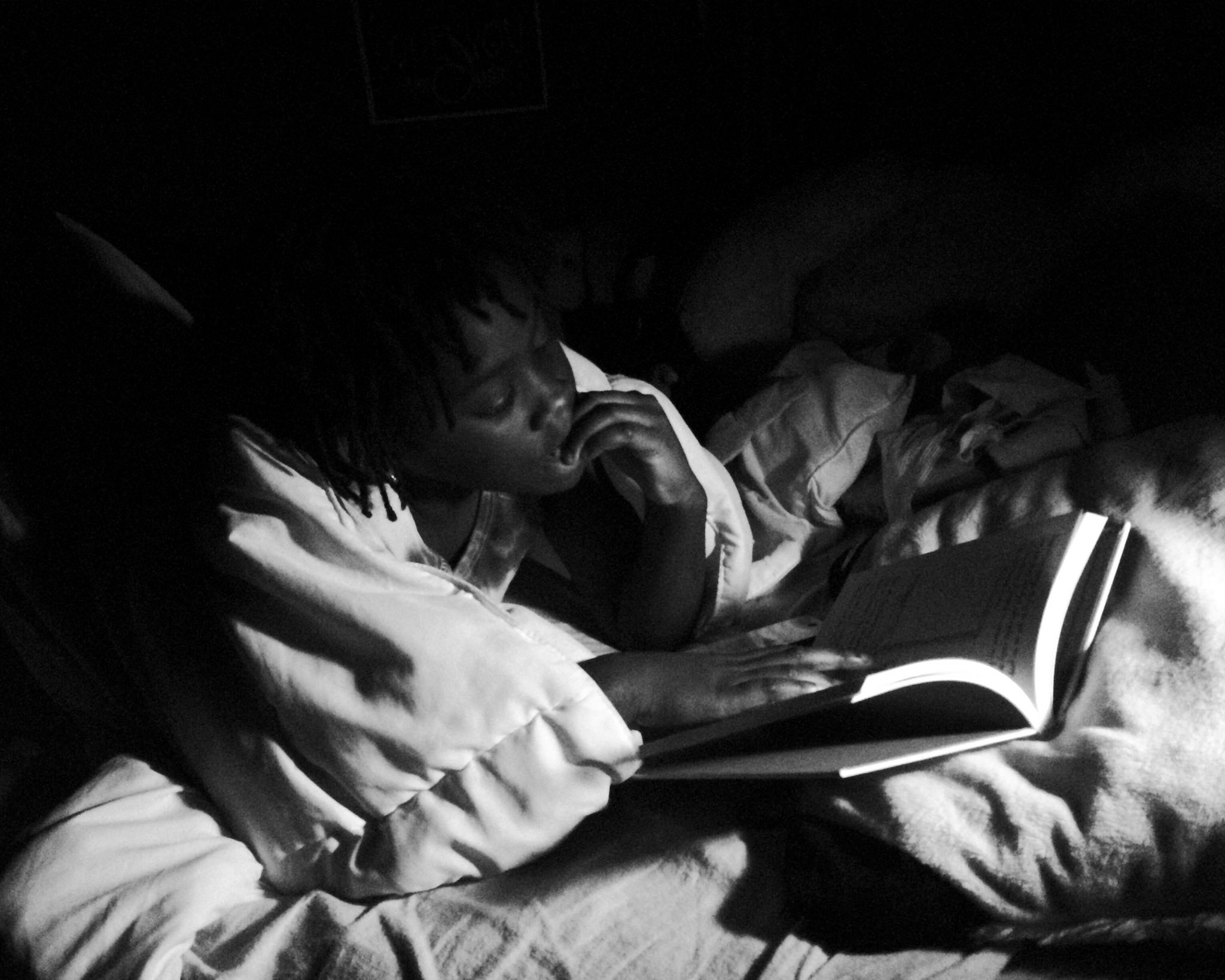My little black girl is three years old, and I’m probably hyper concerned [1] about images of black womaness and their impact on her emotional and physical growth. For as long as I possibly can, I want some say over the representations that flood her developing psyche. That being said, my husband and I surround our little family with Blackness—images, music, paintings, books, toys, and film that speak to the beauty, history, and overall flyness of the Black experience.
Lately, one photo series has been a source of pride for both me and my daughter. By now, I’m sure lots of you have seen the photos of three Red Birds in the Debbie Allen Dance Academy [2] recreating the poses of some of their sheroes. They have flooded the timelines of so many people and have been retweeted and shared by the famous ballerinas themselves. My pride in these photos is twofold—they celebrate the diversity of the black female experience and one of the young ladies is family.
Sydney, the gorgeous nearly fourteen year old ballerina with the beautiful mass of natural hair, is my cousin. She is also my three year old daughter’s hero.
One year ago, Debbie Allen’s The Hot Chocolate Nutcracker aired on BET and I was thrilled to pause it to point out Sydney to my little girl.
“That’s your cousin, Boo. That’s Sydney!”, I told her. Crissy, then two, was ecstatic. “She so beautiful, Mommy! She does the ballet!”. Seven tutus later and I’m now researching DC area children dance companies.
Sydney and her friends, Jalyn and Destiny, understand the impact they have made. When she’s asked of the importance of seeing black ballerinas, Sydney said, “It is important to see dancers who look like me. [Black girls] need to know that somebody out there is already starting this fight for racial equality in dance. We don’t look like other dancers. Our skin color is different and we have more curves. Traditionally, ballerinas are white and skinny. We don’t look like that. I had hips when I was nine!”
For so long, black and brown people fought for the right to be portrayed positively, with depth and humanity.
Perception is everything.
Images and representation on the screen dictate the historical narrative. Historical narrative dictates public perception. Public perception dictates public awareness. Public awareness leads to societal change. Societal change can actualize social justice.
Perception is everything.
For so long, black and brown people fought for the right to be portrayed positively, with depth and humanity. Not because we want a piece of the pie, but because we understand that public perception needs to change in order for our lives to matter to anyone but ourselves.
In this world where were we must broadcast that Black Lives Matter, where there remains no justice for Aiyana Jones, where Dajerria Becton was seen as a threat to an armed adult male, perception is everything. Sydney, just a year younger than Dajerria at the time of her assault, said, “It’s amazing that we are broadening the perception of minority girls! I now realize that it doesn’t take a lot to help out people in this world.”
Her optimism warms my otherwise cynical heart. And it gives me hope that these continued changes in perception will help to create a safer world for my little girl.
Perception is everything.
Sydney and Crissy are growing up in (and helping to shape) a world where little black girls no longer have to aggressively hunt for body and socially positive representations of black womanhood. The very images I longed for as an awkward eleven year old girl, are the images that are readily accessible, attainable, and, thank God, able to be emulated.
When Misty Copeland, Ebony Williams, and Ashley Murphy posed gracefully and triumphantly on the cover of Pointe Magazine, they knew the bold statement they were making. When Sydney, Jalyn, and Destiny decided to recreate that photo, they not only matched the statement, they surpassed it. They saw black women, with their black woman bodies, excelling in a field dominated by white women. They took ownership of that excellence and created a photo that resonated on a deeper level because now, children are in dialogue of “the establishment”.
When Misty Copeland, Ebony Williams, and Ashley Murphy posed gracefully and triumphantly on the cover of Pointe Magazine, they knew the bold statement they were making.
They call the photo series “Friday Night Inspiration” and are dedicated to emulating the photos of other dynamic black female dancers, though Sydney notes, “It’s getting harder, because there’s not a lot”.
Perception is everything. Not only does it shape the historical (read: white) narrative, it shapes our (read: black) consumed narrative. Perception allows little black girls to dream, to aspire, to create the society for which they long.
When asked what advice she would give to little black girls like her cousin, Sydney said, “I would say to ignore everything negative that you hear about yourself and to work hard, because people see hard workers more than they see skin color.”
Keep changing the narrative, Red Birds. Keep changing public perception.
Because it’s everything.
↑ [1] https://www.facebook.com/bethanycriss/posts/10206050695288918
↑ [2] https://www.facebook.com/Debbie-Allen-Dance-Academy-124834180930586/
